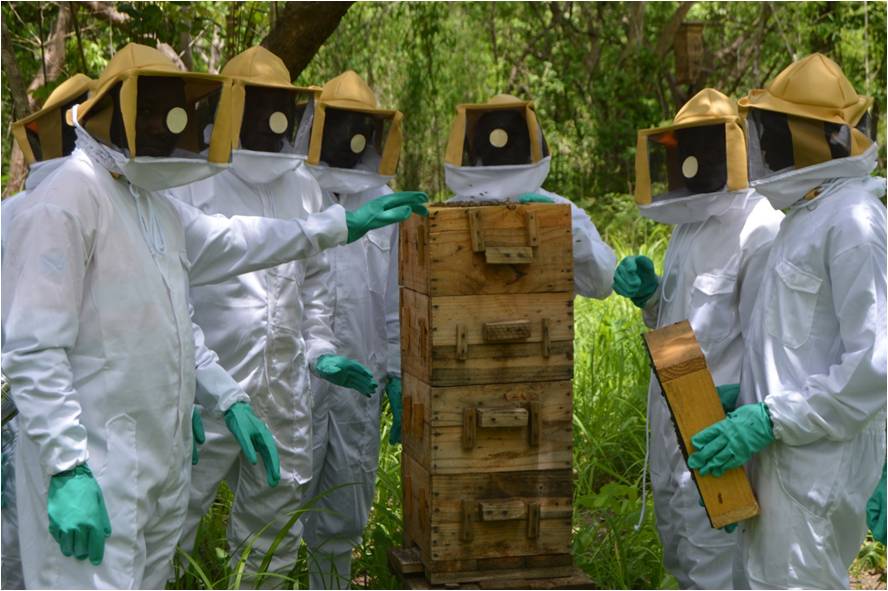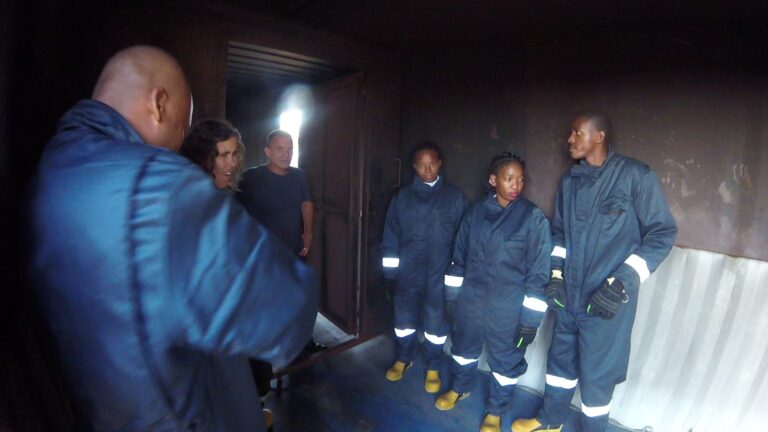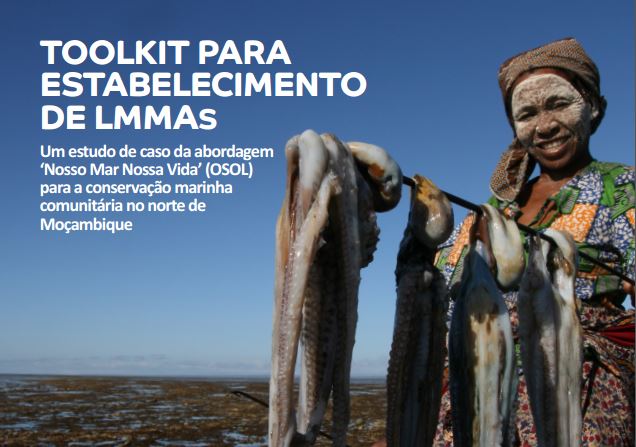UniLúrio in partnership with Twigg trains community beekeepers in Balama
Beekeeping is one of the thematic areas that fall within the research line of the Faculty of Natural Sciences-FCN, related to non-wood forest products commonly considered as a strategy to reduce the pressure on natural resources by rural communities in southern Africa and in particular in Mozambique.
At FCN, this area has been addressed since 2016, through research aimed at assessing the potential of the honey flora and bee products of Cabo Delgado, which resulted in 4 course culmination works. In December 2019, FCN through CICA was requested by the multinational TWIGG EXPLORATION & MINING Lda. (A company based in Mozambique, dedicated to graphite exploration in Cabo Delgado) to work with communities in the district of Balama , in order to enhance the production of honey, propolis, saw and bee pollen in that region.
In this first phase, 19 members of 4 grassroots community associations who are dedicated to beekeeping in the district were trained, the training objectives comprised: the improvement of the techniques of building hives, the supplementation of bees, the techniques of colonization of new hives, the diversity of bee products and the sustainable extraction of honey. At the end of the training, beekeepers recognized the importance of the techniques covered in the training to improve the quality and commercial value of honey, especially in extraction, which is one of the main causes of the loss of commercial value in Mozambique. It was evident that in addition to honey, other products of commercial value such as pollen and propolis can be extracted and make the business even more profitable.



